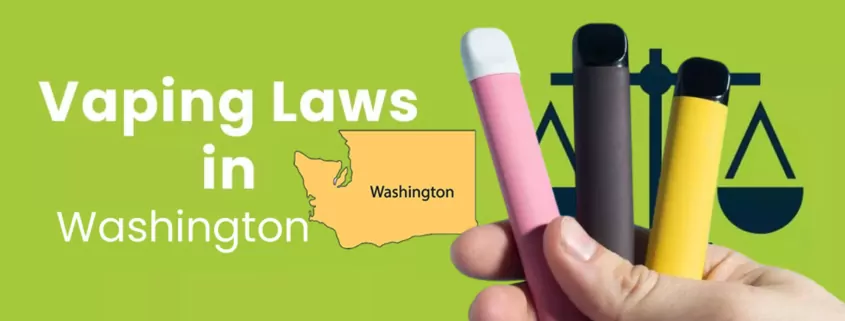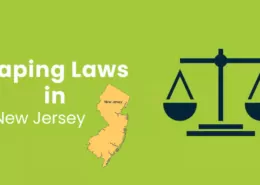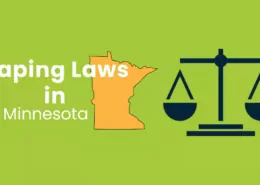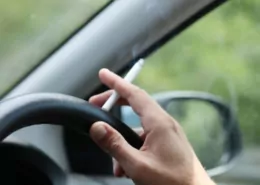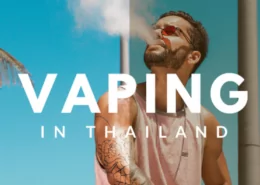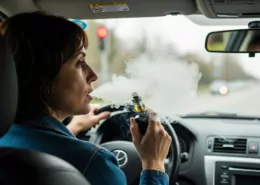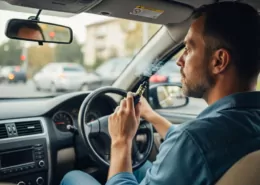Vaping Laws in Washington State: A Comprehensive Guide (2025 updated)
Washington State has established itself as a jurisdiction with a robust and evolving framework for regulating vaping products, including e-cigarettes, vape pens, and other electronic nicotine delivery systems (ENDS). Understanding these multifaceted laws is crucial for consumers, retailers, and manufacturers. This guide provides an in-depth look at Washington State’s current vaping laws, incorporating recent legislative updates and authoritative sources to help you navigate this complex regulatory landscape with clarity and ensure compliance.
The Legal Foundation of Vaping Laws in Washington State
At the core of Washington’s approach to vaping is a clear focus on preventing underage access, supported by both state and federal law, alongside specific definitions that categorize these products for regulatory purposes.
Defining “Vapor Product” for Comprehensive Regulation
Washington law provides a broad definition of “vapor product” to ensure comprehensive regulatory coverage. Under Chapter 70.345 RCW, it generally refers to any noncombustible product that may or may not contain nicotine and that employs a heating element, power source, electronic circuit, or other electronic, chemical, or mechanical means to produce vapor or aerosol from a solution or other substance for inhalation. This includes e-cigarettes, e-cigars, e-pipes, vape pens, and similar devices, along with any component, part, or accessory, whether sold separately or as a kit. This definition explicitly includes products regardless of nicotine content when considering sales to minors and many other restrictions. Cannabis-related vapor products are generally excluded as they fall under a different regulatory framework (RCW 69.50.101).
Minimum Legal Sales Age: Strictly 21
Washington State firmly enforces a minimum legal sales age of 21 for all tobacco and vapor products, which explicitly includes all e-cigarettes and their components. This “Tobacco 21” standard became effective on January 1, 2020, following the passage of Engrossed House Bill 1074 in March 2019. This aligns Washington with federal legislation aimed at creating a uniform age limit nationwide to curb youth nicotine initiation.
Retailers are legally mandated to verify the age of any purchaser by checking a valid government-issued photographic identification. Selling, distributing, or even furnishing a vapor product to anyone under 21 is a serious offense. Penalties for retailers can be severe, escalating with subsequent violations:
- First violation: $200 fine.
- Second violation within a specified period: $600 fine.
- Third violation: $2,000 fine and a six-month license suspension.
- Fourth violation: $3,000 fine and a twelve-month license suspension.
- Fifth or more violations: License revocation for five years.
While individuals aged 18-20 do not face liability for mere purchase or possession under some interpretations of current law, those under 18 can face civil liability. The primary enforcement focus is on preventing illegal sales by retailers.
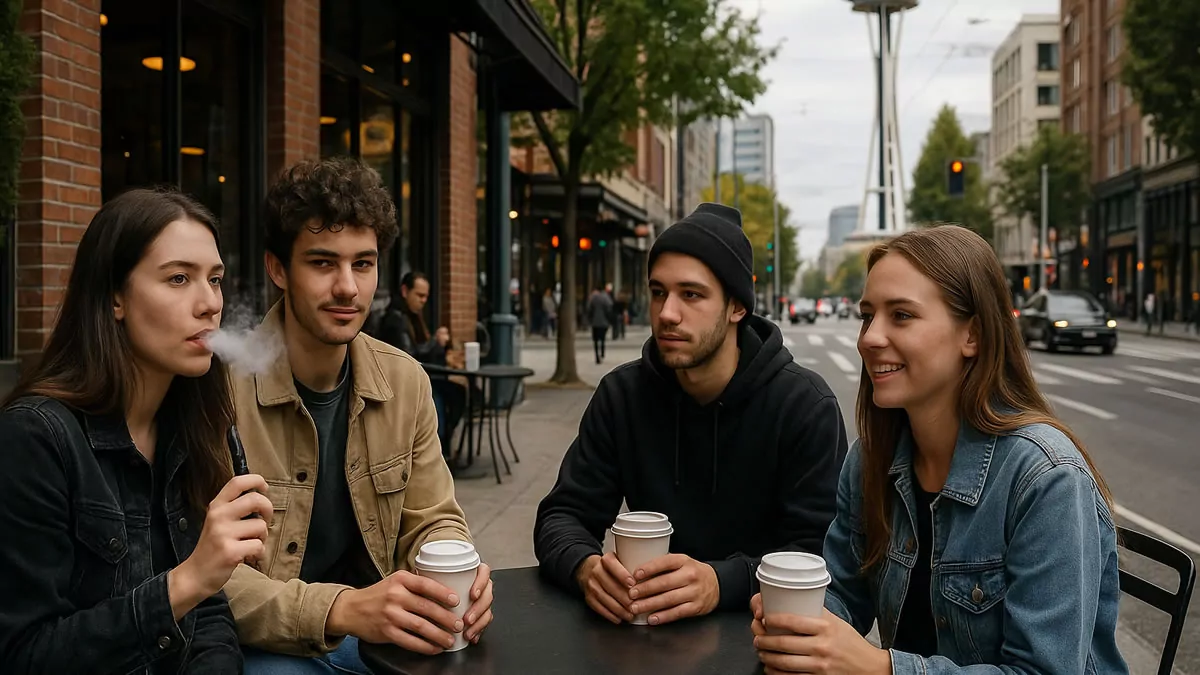
Where Vaping is Prohibited in Washington State
Washington State has implemented extensive prohibitions on vaping in various public and semi-public settings, largely to protect non-users from exposure to secondhand aerosol and to denormalize vaping, especially around children.
Statewide Prohibitions in Sensitive Locations
State law explicitly prohibits vaping in a range of environments considered sensitive, particularly those frequented by children:
- Childcare facilities: Both indoor and outdoor areas.
- Schools and school buses: This includes all K-12 school properties (indoors and outdoors) and during school-sponsored events.
- Playgrounds: Outdoor playgrounds during daylight hours when children under 12 are present or likely to be present.
- Elevators.
- Within 500 feet of schools: This applies to indoor areas only.
- Indoor early learning facilities.
- Vehicles used to transport children.
Public institutions of higher education also typically have their own specific policies restricting or prohibiting the use and advertisement of electronic cigarettes on campus.
Indoor Public Places and Workplaces
While Washington’s statewide Smoking in Public Places law (Chapter 70.160 RCW) primarily targets combustible tobacco, the state’s vapor products law (Chapter 70.345 RCW) grants local health departments and jurisdictions the authority to adopt and enforce local ordinances that are more restrictive than state law regarding vapor product use in indoor public places and outdoor areas where children congregate.
Consequently, many of Washington’s most populous counties and cities have extended their indoor clean air acts to include e-cigarettes, effectively banning vaping in most indoor public places and places of employment, including restaurants and bars. Examples include:
- King County (including Seattle)
- Pierce County
- Snohomish County (amended state smoking law to include e-cigarettes)
- Clark County
- Spokane County
- Whatcom County (prohibits vaping in all public places and places of employment, including within 25 feet of such locations)
A common local rule is to prohibit vaping within a 25-foot buffer zone around doorways, windows that open, and ventilation intakes of buildings where vaping is banned indoors. Given this local variability, it is crucial to check specific city or county ordinances.
Ecigator is one of the well-known vape brands spun off from FM Technology Co., Ltd, it’s an ISO-certified disposable vape manufacturer for OEMs, ODMs, and OBM since 2010. The founder team comes from top firms with more than 10 years of experience in the vaping industry and has devoted thousands of hours to providing users with a better and better experience.
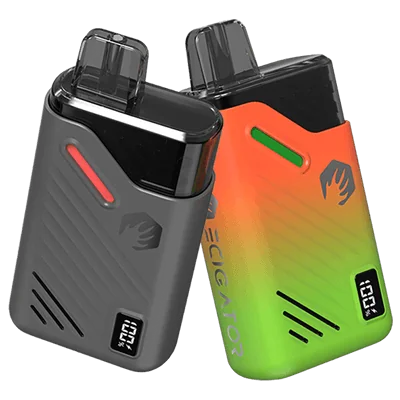
18K Disposable Pod Kit
Disposable Pod Kit – 18ml changeable pod with 650mAh rechargeable battery.
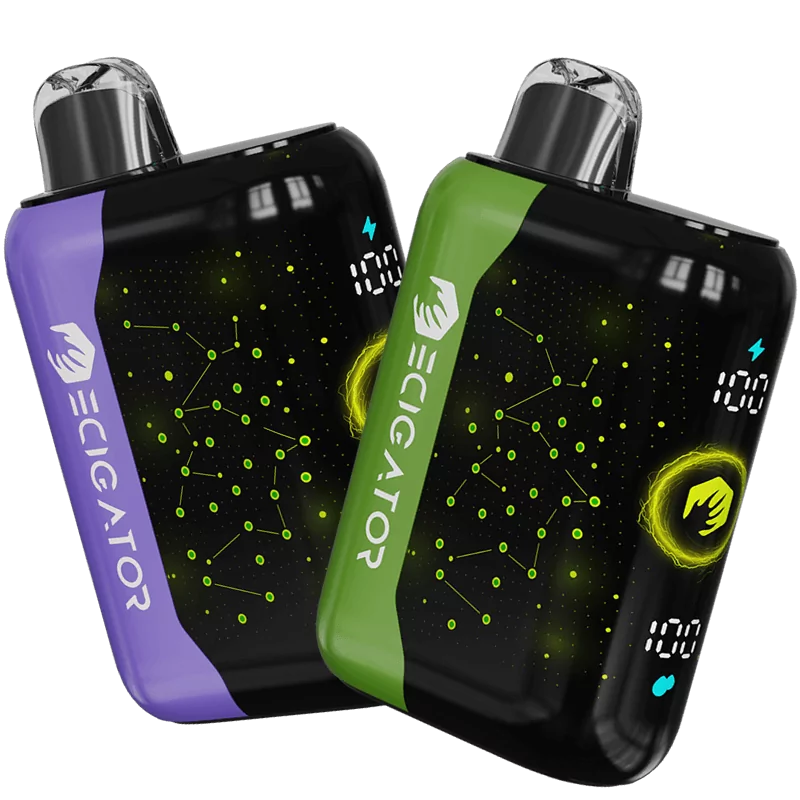
35K with Large Screen
35000 Puffs Disposable Vape with 3D galaxy screen. Eco and Pulse working modes.
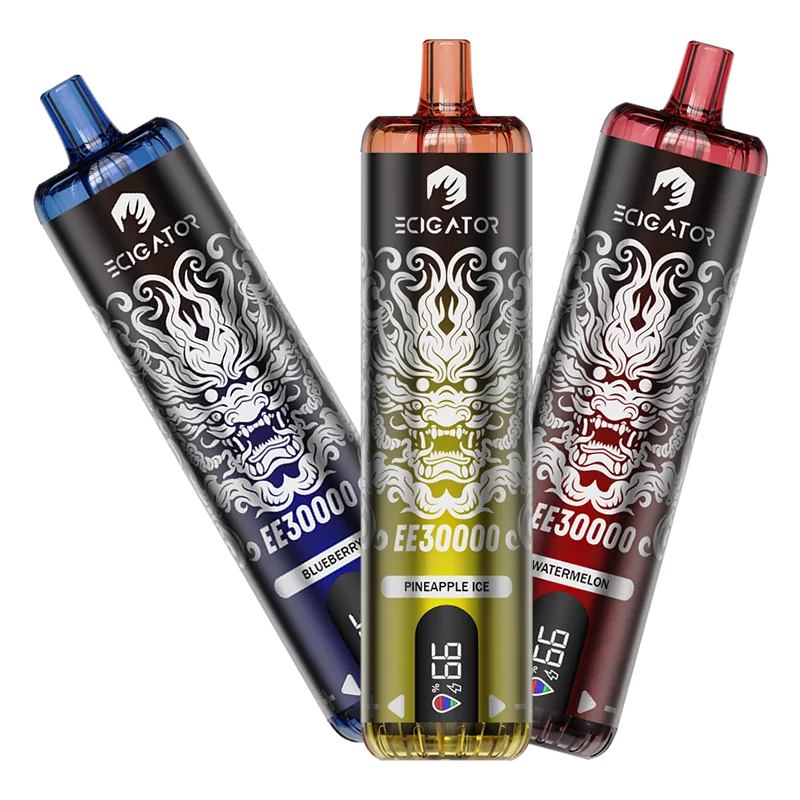
30K DTL Disposable
30K Puffs DTL(Directly to Lung) disposable vape with airflow control and screen.
Selling Vaping Products in Washington State
The sale of vaping products in Washington State is a regulated activity, with specific requirements for retailers concerning licensing, product handling, and age verification.
Mandatory Retailer, Distributor, and Delivery Sale Licensing
All businesses involved in the vapor product industry must obtain appropriate licenses from the Washington State Liquor and Cannabis Board (LCB). The main license types and their annual fees include:
- Vapor Product Retailer’s License: $175 per location.
- Vapor Product Distributor’s License: $150 for the first location, plus $100 for each additional location.
- Vapor Product Delivery Sale License: $250 for businesses accepting orders and delivering through mail or other services.
A combination license for cigarette, other tobacco product (OTP), and vapor product retailing is available for $250. Operating without the proper license is a Class C felony. The application process typically takes around 10 business days for online submissions but can be longer due to required criminal history background checks for owners and key personnel.
Product Handling, Display, and Sales Practices
- No Self-Service Displays: Vapor products must be stored in a manner that makes them inaccessible to minors in retail environments, typically behind counters or in locked displays, preventing open displays by customers.
- Child-Resistant Packaging: All e-liquid containers sold in Washington must be child-resistant, as mandated by RCW 70.345.130(1).
- Labeling Requirements: Liquid nicotine containers must include specific warnings about the harmful effects of nicotine, instructions to keep products away from children, and a prominent statement that vaping is illegal for minors. For open systems (refillable devices), labels must also disclose the nicotine amount in milligrams per milliliter (mg/ml) and the total volume in milliliters (ml), as per RCW 70.345.075(1).
- Sampling Restrictions: Vapor product samples are allowed only within licensed retail premises restricted to those over 21. Samples must contain no nicotine unless the customer explicitly consents, and disposable mouthpieces are required for hygiene. Free distribution of vapor products without a purchase is prohibited.
- Delivery Sales: Delivery sales of vapor products are prohibited unless the seller has a valid delivery sale license. This requires robust age verification (purchaser must be 21+) via a third-party database and payment only through credit or debit cards in the purchaser’s name. An adult signature is required upon delivery. Federal PACT Act compliance, which includes these measures, became mandatory in March 2021.
Taxation of Vaping Products
Washington State imposes a significant volume-based excise tax on vapor products, effective October 1, 2019. The tax rates are:
- For solutions in closed systems or containers under 5 ml: $0.27 per milliliter.
- For solutions in accessible containers greater than 5 ml (typically bottled e-liquid for open systems): $0.09 per milliliter.
These taxes apply to vapor products regardless of whether they contain nicotine. This tax structure places Washington among the states with higher tax burdens on vaping products and aims to fund enforcement, prevention programs, and general state revenue. This is distinct from states that use a percentage of wholesale price, like California (60%) or Massachusetts (75%).
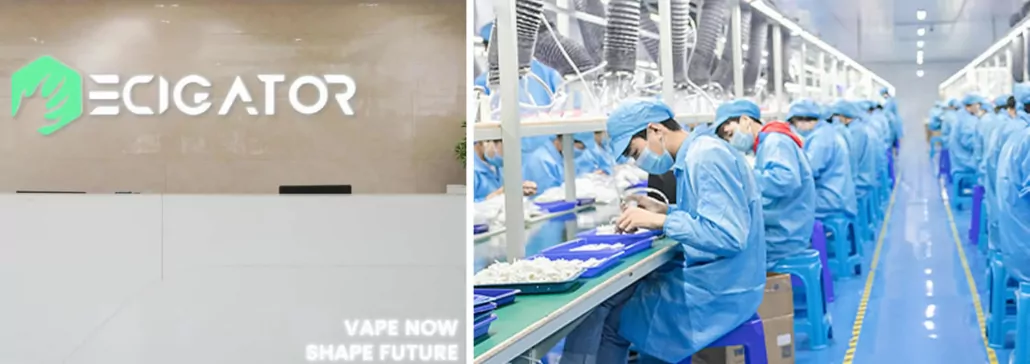
ECIGATOR
Ecigator is one of the well-known vape brands spun off from FM Technology Co., Ltd, it’s an ISO-certified disposable vape manufacturer for OEMs, ODMs, and OBM since 2010. The founder team comes from top firms with more than 10 years of experience in the vaping industry and has devoted thousands of hours to providing users with a better and better experience.
The Ongoing Push for Flavor Bans
One of the most significant and contentious areas of vaping regulation in Washington State is the ongoing legislative effort to ban flavored vapor products. These efforts are primarily driven by concerns over the appeal of flavors to younger users, which is seen as a major factor in youth vaping initiation.
In 2019, Governor Jay Inslee issued an Executive Order (19-03) in response to vaping-associated lung injuries (EVALI), leading to a temporary emergency ban on flavored vapor products by the State Board of Health from October 2019 through February 2020. A separate ban on vitamin E acetate (linked to EVALI) lasted until March 2020.
Since then, lawmakers have made repeated attempts to enact a permanent statewide ban on flavored tobacco and vapor products, including menthol. As of the 2025 legislative session, bills such as House Bill 1203 and Senate Bill 5183 (and previously HB 2068) were under consideration to prohibit the sale of flavored tobacco, nicotine, or vapor products, with proposed effective dates ranging from January 1, 2026, to July 1, 2027. These bills typically define “flavor” broadly to include any taste or aroma other than tobacco.
However, these comprehensive flavor ban proposals have faced significant challenges and, as of the conclusion of the 2025 legislative session (which ended April 27, 2025), both major flavor ban bills (HB 1203 and HB 2068) failed to pass. Budgetary pressures, including a projected $234 million revenue loss over two years from such a ban and a significant state budget shortfall, played a key role. Strong industry opposition, led by groups like the Vapor Technology Association, also emphasized potential job losses and the argument that flavor bans would harm adult smokers seeking less harmful alternatives.
Despite these legislative setbacks at the state level, advocacy groups like “Flavors Hook Kids Washington” continue to push for these restrictions. The future of a statewide flavor ban in Washington remains uncertain and will likely be a recurring topic in future legislative sessions.
Conclusion:
Washington State has undeniably established a comprehensive and evolving legal framework to regulate vapor products. With a strict legal age of 21 for purchase and possession, broad prohibitions on public use (particularly in sensitive areas and often extended by local ordinances), rigorous retailer licensing and sales requirements, and one of the nation’s highest tax rates on these products, the state is actively working to protect public health and especially to curb youth vaping. While a statewide flavor ban has not yet materialized despite strong pushes, the regulatory environment remains one of the most restrictive in the U.S.
For consumers, understanding the age limits and where vaping is prohibited is crucial. For retailers and manufacturers, meticulous compliance with licensing, age verification, taxation, product labeling, and sales practices is paramount to avoid significant penalties. As public health understanding evolves and legislative sessions bring new proposals, Washington’s vaping laws are likely to see further refinements. Staying informed through official state resources like the Washington State Department of Health and the Washington State Liquor and Cannabis Board is essential for all stakeholders navigating this dynamic landscape.
References
- Washington State Department of Health – Tobacco and Vapor 21
- Washington State Department of Health – Vapor Products Information
- Washington State Legislature – RCW 70.155 (Tobacco – Access to Minors)
- Cornell Law – WAC 314-35-020 (Vapor product retailer license—Application process)
- WA House Bill Report – HB 1203 (2025 Flavor Ban Proposal)
- Washington State Department of Health – Laws and Regulations (Tobacco & Vapor)
- Whatcom County – Smoking & Vaping in Public Places
- WA State Board of Health – Impact Report SB5183 (Feb 2025 Flavor Ban Proposal)

